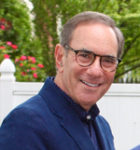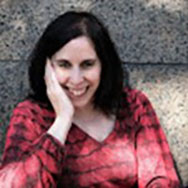
SAN DIEGO — The short-term and long-term psychological effects of bullying – on either side of the bullying fence, as a victim or as an aggressor – are well documented. Sadly, Jewish day schools, synagogues, youth groups and camps are not necessarily free of children and teens intentionally and repeatedly harming another through direct and indirect bullying.
Direct bullying involves physical and verbal violence while indirect bullying includes damaging another child’s friendships, self-esteem and social status. Today we also face cyberbullying, intentionally harming others over cell phones and other devices through threats, unwanted text messages, defamation, impersonation, unauthorized publication of private information or images and manipulation. Bullying hurts, it really hurts, and it leaves its imprint for life.

I had the opportunity to speak with Stacey J. Miller, author of Getting Past Childhood Bullying: How Adults Can Recover from Bullying That Began at School, (BPT Press, October 2018). With more than 25 years as a content writer, editor, proofreader and social media manager, Miller who resides in Randolph, Massachusetts, tackles this topic with superb sensitivity.
She offers a personal account of her own victimization. “Bullying at school left scars on me and on millions of other people around the world. Not everyone survived childhood bullying. I was one of the lucky ones. In time, I learned to face the childhood trauma and move past it, and so can you. The free fall that began when you were tormented by bullies can end.”
Miller began her journey into victimization in 6th grade between 1975 and 1976, a voyage so callous and traumatic that she recalled going to sleep and hoping she would not wake up the next morning. While attending supplemental Hebrew School offered her social and emotional respite, returning to public school the next day only brought severe emotional and physical bullying again…and again…again.
While she initially thought it was simply “kids being kids,” or as she put it, “inclement weather,” she recognized that much of her anguish and heartache came from placing power to define her into the hands and mouths of those bitter bullies who transformed her from a happy, successful, bouncing elementary school student to a suffering, derailed, distressed junior high student. Believing she was not what she thought she was but what others so cruelly defined her as, left her with much emotional grief. She never actually contemplated suicide, but her thoughts, her hopes, of not waking in the morning were clearly precursors to a storm of turmoil that left her empty, with no pathway out. Sadly, not even her rabbis and teachers in Hebrew School were of help, given that she was so ashamed of the “dirty word” of “bullying” and hid her experience from all.
Miller shared how difficult it was for her to continue believing in herself as a result of the physical abuse, the social abuse, the mental abuse she sustained from so many in her junior high school. She described her school as “not being a school, but rather a building” with little or no adult eyes on the youngsters. When she would find the courage to consider going to the principal’s office, unfortunately there was no principal to be found. Teachers were of no help because they “weren’t present” though they may have been physically in attendance. She grew “comfortable” pretending that her bullying was simply an acceptable rite of passage. But it wasn’t.
She recognizes that saving face, holding onto vestiges of dignity, protecting family and friends from having to deal with her “melodrama” spared others from taking responsibility for their actions. Silence was the best method of coping she had. Now she recognizes the harm that belief caused.
Her community was drug-infested, a shattered community in which most came from homes that were despairing financially and otherwise. Her home life was a wonderful one she recalls, and that in part she believed, was what she carried with her into school that was a part of the cause of her being bullied. She had what others wanted.
Miller did not feel there was anti-Semitism as a basis for her bullying. She felt it was more of a have and a have-not circumstance. Now she carries extraordinary compassion, care and empathy for those who nearly destroyed her life, understanding the pain and anguish they carried with their own childhoods. In “spreading breadcrumbs” throughout social media to be able to connect with others in her past, she has heard from some of her bullies who’ve expressed deep regret, anguish and pain of their harm. She described her experiences as traumatic for her and her bullies. Stacey hopes to be able to bring her message to Jewish youth groups to help others who may have experienced the same trauma she did.
Who could she talk with? She desperately prevented her story from becoming public and hid it from parents and others. Now, she believes there is always someone to speak with, and speak out we must.
Following extensive research including dialogues with mental health professionals, Miller offers four steps to healing from bullying that worked for her:
“Part 1. Tell your story. Take ownership of it and tell it first to yourself. Then decide whether or not you want to share the story with others. If you can articulate what happened, you can begin to reframe the events and learn from them.
Part 2. Maximize you online presence. The internet has made the world a much smaller place. Chances are, anyone from your past can find you again within just a few minutes without even exerting much effort. That can be a terrifying prospect unless you take charge of what people will see when they find you online and prepare yourself for the eventuality of their getting in touch.
Part 3. Find your foes online. You do not have to wait for people to find you online. Instead, you can find them first. That allows you to put the people associated with the bullying of your childhood into perspective. You will see that they are not omniscient. They can’t hurt you anymore because, after all, they are just ordinary mortals.
Part 4. Face your foes in the real world. The childhood bullying you experienced might have ended without providing you with an opportunity for closure. You may feel that you still have unfinished business with the people who hurt you. While you cannot change the past, you can shoot an alternate ending by meeting the people from your past once more — on your terms — when you are ready. Finally, you can end the story on your terms.”
Certainly, bullying is not the Jewish way. We do not stand idly by. We are created in the Divine Image and we believe that every human being is created b’tzelem Elohim, in the image and likeness of God. Bullying another person, therefore, is like bullying God. We are taught through our Torah that it is improper to bully anyone for any aim. A person’s race, religion, ethnicity, sexual orientation, country of origin, beliefs, appearance, income, social status – there is no reason ever to harass or bully another. We are taught to guard our tongue very carefully to not add to anyone’s troubles through our words.
We are taught to respond with outrage at the harm we see done to others through bullying and intolerance. We are raised to show respect for others. We are commanded to protect the widow and the orphan, to take care of the stranger and never allow justice to be altered by power or wealth. Perhaps infused in the 10 Commandments is the understood, “Thou Shalt Not Bully.” Indeed, when Rabbi Akiva was asked for the most important teaching in the Torah, he said, v’ahavta l’reekha kamokha. Love your neighbor as yourself. We are raised to be a mentsch, not lowered to be a bully.
Yet, as adults, how often do we see ourselves and others judging another for a myriad of reasons. That’s the first step in bullying. Bullies think, “They are beneath me.” Truly, bullies think that they are beneath others. That’s the story that Stacey shares as she thinks back to the bullies who physically and emotionally harmed her. She essentially had and was what they wished they had and were. By pushing another down on the see saw, one goes up. But only temporarily.
The esteemed and talented author and speaker notes, “Fortunately, society now has recognized bullying as unacceptable and deeply detrimental. We have stopped normalizing it. Now that bullying has finally come out of the closet and into the light, you can, too. You weren’t to blame for what happened. You endured, and you’re probably a more compassionate person because of it. Give yourself credit for being the hero that you are.” Her book is written from the heart and is an empathic, emotional read. The book will surely help others recognize that if once bullied, they do not need to carry shame and self-blame, and can share with healthy vulnerability, their own story.
The * STOP BULLYING NOW HOTLINE (USA) 1-800-273-8255 set up by U.S. Department of Health and Human Services is a resource to which many can turn. Local mental health professionals, and even law enforcement, are available to be of help.
For more information on Stacey J. Miller, contact her at www.bookpr.com
Another of her popular books, “101 Recipes for Microwave Mug Cakes,” hit #4 on Amazon and #7 on BN.com after her appearance on the “Rachel Ray Show.”
*
Michael Mantell earned his Ph.D. at the University of Pennsylvania and is a frequent lecturer on behavior science. He also writes a weekly D’var Torah column. More of his stories may be accessed by clicking his byline at the top of this page. He may be contacted via michael.mantell@sdjewishworld.com